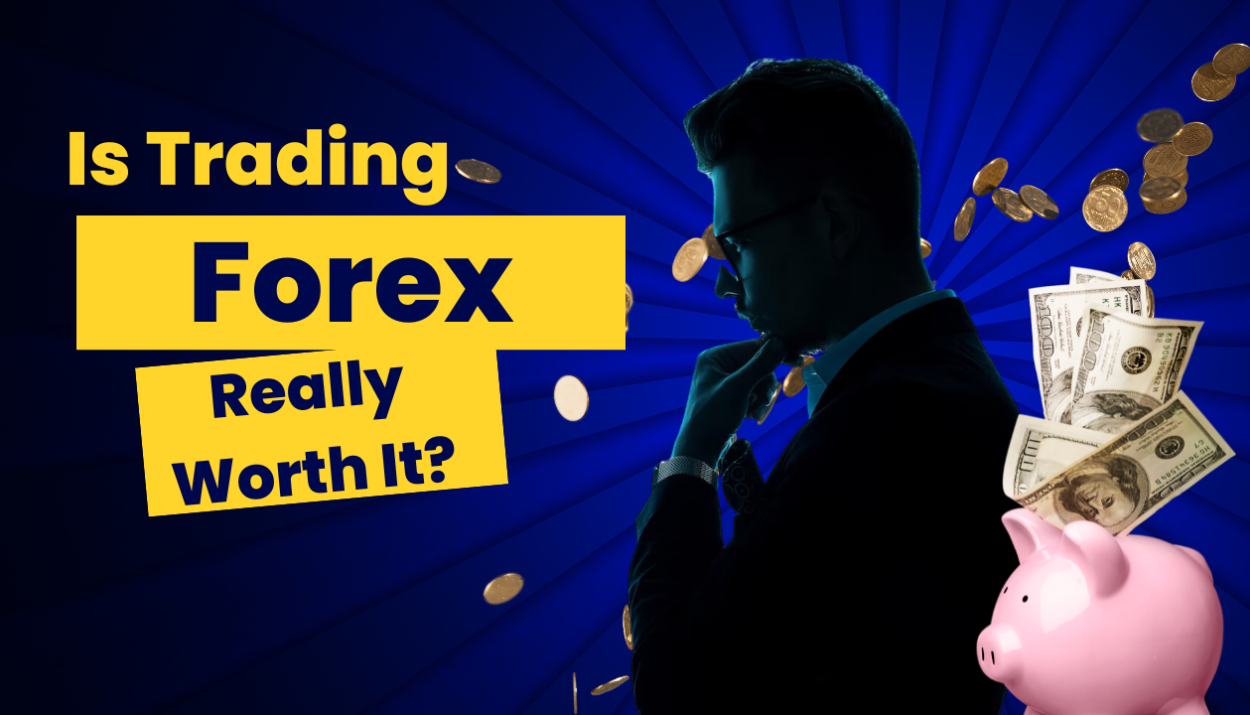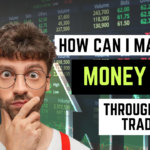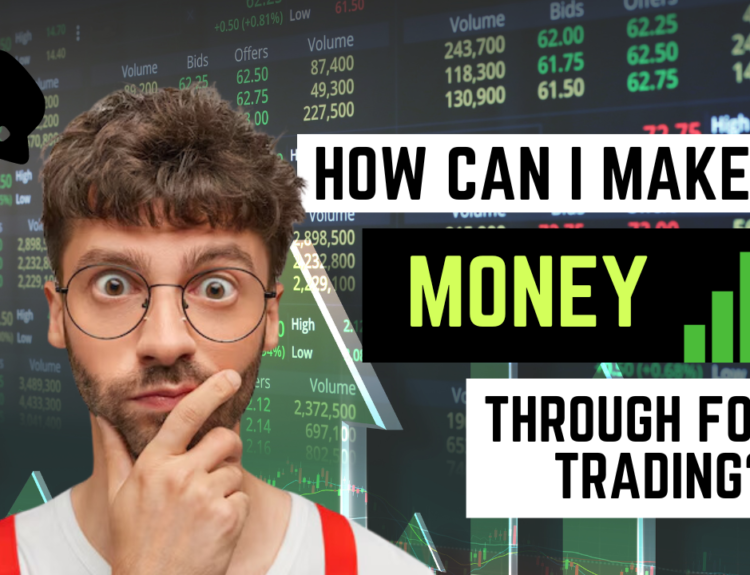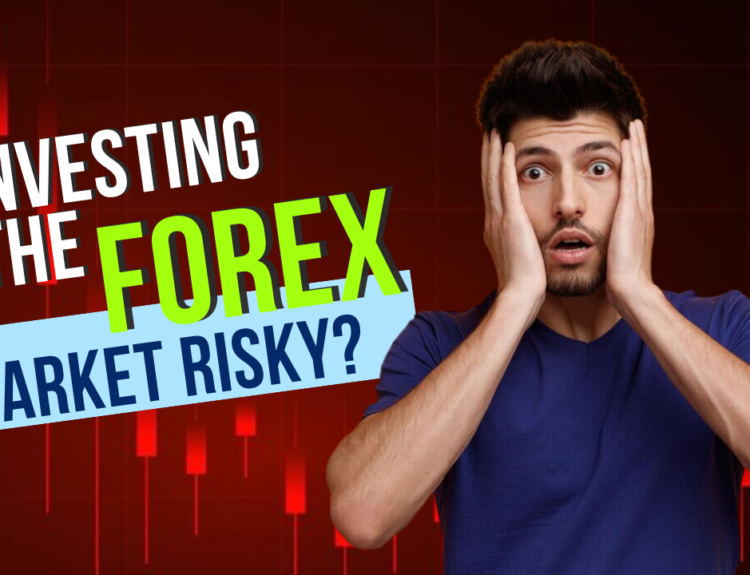The foreign exchange market is considered to be the greatest financial marketplace. Although it is a part of the financial system, in itself it’s a behemoth. Due to the rising participants, with greater money flow into economies and trading platforms, is trading forex really worth it? Unfolding the various do’s and don’ts of trading forex, a deep dive is required to understand the un-earthed areas of forex trading.
Understanding the Basics Forex Trading
What is forex trading is the most fundamental question a trader should ask. Forex trading also revered as foreign exchange trading is the buying and selling of currencies. These currencies are legally authorised by authorities and governments to trade all over the world. Prices of the currencies or forex can swing by certainties and uncertainties.
There are plenty of powerful players which influence the foreign exchange trading world. World governments, big banks, corporations, and individuals complete the foreign exchange landscape.
However, there are certain requirements that need to be completed before buying and selling occur. These requirements are paramount.
- Price:
There needs to be a price quoted to a forex. It should be publicly traded, meaning anyone can buy and sell it.
- Supply and Demand:
Supply and demand form the basis of any exchange. When there is enough supply, hence selling is at the forefront. What drives most currencies up is the demand for it..
But this is not enough. Therefore, the forex market is not immune to these uncertainties.
3 Advantages of Forex Trading
Foreign exchange trading has its own advantages. These make it a darling of the markets. Hence, making it effective to trade.
- Leverage: Foreign exchange trading carries huge leverage. This advantage helps traders in executing grandeur trades with less money. The gap between the actual amount and leverage is called margin (actual amount – margin = leverage). This is how large trades are made in the forex market.
- 24/7 Availability: The forex market is always live, 24/7. Forex trading can be done relentlessly. This gives ample time to the forex trader to transform their losses into gains.
- Liquidity: Due to the fact market participants include governments, banks, corporations, and individuals, liquidity is not a problem. Millions and billions of money flow is induced into the forex market.
3 Disadvantages of Forex Trading
Forex trading could become a nightmare for multiple reasons. The reasons include:
- Volatility: Considered to be the oxygen of foreign exchange trading. Every volatility counts, especially on the downside. Because people are participants they are influenced by fear and greed. When the market starts to go bearish, then fear pulls the strings to sell. This volatility creates panic. That’s why volatility is a disadvantage.
- Leverage: The usual suspect again in disadvantages. Leverage can prove to be a two-edged sword. It means borrowing, an obligation, or a loan. This obligation needs to be paid off. But how does a trader pay off when the forex market is bearish? Every currency is down. This exposes the trader to an endless cycle of loans and hence, creates a perfect disadvantage.
- Complexity: Understanding currency trading is not a walk in the park. It has its own complexities which are not everyone’s cup of tea. Traders use forex trends, forex indicators, and forex signals and do forex analysis to understand them. But still, most of them fail. So, if you want to trade in forex, do proper forex analysis and receive forex education to do better.
Although, there is a case study and an example to help you understand foreign exchange better.
1Biggest win of forex trading
2An example of forex trading gone wrong
- The biggest win hands down goes to George Soros. The Hungarian-born American trader and investor once shorted the British pound (GBP). He thought the GBP was overvalued when it was under the European Exchange Rate Mechanism (ERM).
Due to financial intricacies and tight regulations, the British government exited the ERM. This move threw the British Pound into a free fall mode and eventually George Soros made a $1 billion profit. ↩︎ - A perfect example would be the costs involved in foreign exchange trading. Most people underestimate the brunt types of costs that can eat profit. In almost every economy, the different cost types include spreads, commissions, leverage costs, and withdrawal fees. Even if you made a considerably better profit, the costs can dampen the mood. ↩︎
Factors To Consider Before Trading Forex
As elaborated above, forex trading is a complex affair. One must possess forex education to swim above the tide. However, several other factors are crucial to keep in check.
Expectations: The needs have to be separated from the wants. Traders must possess the psychological stamina to separate dreams from reality. If an expert can crack forex trade, it doesn’t necessarily mean you can too. Unrealistic profit targets and standards shouldn’t interfere with your discipline to carry out a trade.
Forex Strategies: Forex is just like any other discipline you study at school or college. Studying properly applied and tested forex strategies is a good way to start. Yet, checking yourself on the forex strategies is paramount. Helping you understand the pitfalls and opportunities one presents.
Forex Broker: The costs of conducting a foreign exchange trade are crucial. While gaining forex education, also study the hidden costs a forex broker might charge. There have been instances where the forex broker charged higher than usual charges. So be vigilant.
Alternatives to Forex Trading
Trading doesn’t only happen through forex. There are plenty of other forms where trading exists. But keep in mind, that almost all trading forms have their own risks. Keeping risk appetite, especially at optimum levels is important.
Stocks: A stock market or equity market is a form of instrument that is bought and sold in public markets. These are smaller fragments of a business. Anyone can buy and sell these. The famous kind of trading in equity is day trading. In day trading, stocks are bought and sold on the same day.
Bonds: Bonds are portions of borrowings that can be bought and sold. These are for businesses as well as governments. Government bonds are considered the safest instrument because it is backed by the government. The only instance when a bond loses its power is when the government goes bankrupt. These can be traded as well.
Conclusion
Now to the burning question, is trading forex really worth it? The answer could be different in people’s opinion but it is worth the risk. Because the environment is changing, you must change. Inflation is cutting the spending power. As our daily needs supplies go expensive we must try and find alternatives to keep ourselves afloat.






